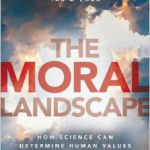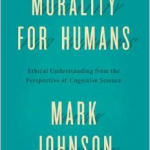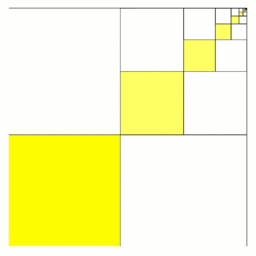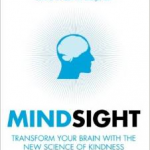Another parable. See The Ship and An Acre of Forest for earlier ones.
Gaynor had now given up her early obsession with music and decided to focus on her career. In fact, it had been several years now since she had even thought about music. Instead, her focus was on the completion of this project, the approval of her boss, the likelihood of more responsibility in the next project, the need to overcome obstructive colleagues and placate demanding customers, the determination to make an impression for her ability and commitment. She had barely noticed as her relationship unravelled and her boyfriend moved on. She lived alone now, and worked.
But suddenly, like a swimmer stricken by weakness in mid-channel, she began to find herself undermined by weakness. One morning she woke up at 3am overwhelmed by despair – knowing suddenly that she was not good enough and there was no point. She could not go to work and she could not go on. She took time off, and at first her boss was sympathetic. “You’ve been overdoing it, Gaynor” she said on the telephone, “But you’re a valuable asset to the company, so you need to look after yourself. You take some time off and get better.” The doctor advised a new treatment: mindfulness based stress reduction. Really good for depression, he had said, much better than giving her drugs. So one afternoon, Gaynor found herself in a class learning how to meditate.
At first it was really annoying. The mindfulness teacher led them in a body scan and then told them to focus on the breath. For Gaynor, the body scan had just made her feel insecure about her body: it wasn’t good enough, it was full of tension. Then when asked to focus on the breath she just found it boring. She tried doing it for a few seconds, but then immediately started thinking about the office again.
In the discussion afterwards, Gaynor asked the mindfulness teacher how she could focus on her body or on the breath without getting stressed about it. To her they just seemed like new sources of stress. Why go to a meditation class and fail at doing something else, having just failed at going to work? If she tried to stop doing these things, she would float around and then just land right back on her stress points.
“Well,” the Mindfulness Teacher seemed to be searching for the right response, “have you ever played any music – an instrument of some kind?”
A sudden stab of memory at the word “music”: Gaynor and her lute, at the age of 14. That lute given to her by her aunt, and the local guitar teacher keen on the baroque, who had taught her and encouraged her. At one time she hadn’t just played music, it had seemed that music had also been playing her.
“Yes,” responded Gaynor after a pause, “I used to play the lute, but I gave it up to concentrate on my career.”
“Ah! Well, there’s a story told by the Buddha about a lute. Once there was a monk who came to him whose name was Sona. Sona had been trying too hard in meditation. Like you he was just finding it another challenge, another source of stress. But Sona also used to play the lute. So the Buddha asked him, ‘What happens if the lute-strings are too tight?’ What would you say, Gaynor?”
“You don’t get a good tone. You get distortions, and it’s bad for the instrument.”
“And what happens if the lute-strings are too slack?”
“Similarly, you don’t get a good tone. It’s out of tune.”
“So you need the lute-strings to be neither too taut nor too slack, but somewhere in between, the Middle Way. Meditation is just like that. You have to find a point in yourself where you start getting the right tone, the one that just hits the note and is in tune. You won’t do that by forcing your effort or having too rigid an idea of what you want to achieve. You have to be a bit exploratory and provisional. On the other hand you do need to have a sense of purpose in meditation, and to maintain that sense of purpose, otherwise you will just drift off.”
When she got home, Gaynor went impulsively to her wardrobe, where, under a pile of clothes and other detritus, she found her lute in its case. In excitement, she took it up and tried to tune it, but straight away one of the strings snapped. She had to make a trip to a music shop before she could go any further. But then at last she was there, with a lute once more in her hands, and with the strings neither too taut nor too slack. After a few minutes of initial clumsiness, she was amazed at how quickly her musical agility returned: the technique, the expression, the memory of the pieces, all were still there.
She played solidly for two hours, and then realised that her depression had apparently lifted. But she felt no urge to go back to work.
The next week she returned to the meditation class. In the practice, this time, she tried to tune her breath like a lute-string: neither too taut, nor too slack. For a while she seemed to find that point, then she got distracted by congratulating herself and thinking about her lute. At least she wasn’t thinking about work, she thought.
****************************************************************************************
The Middle Way and psychological states
This story uses an analogy directly used by the Buddha to illustrate the Middle Way in relation to psychological states. The Middle Way appears not just in relation to sets of explicit views – what we might typically think of as ‘extreme’ views – but also in the assumptions we make in everyday life. If you are not an extremist, unfortunately you can’t congratulate yourself that you are necessarily already practising the Middle Way, as the kinds of states encountered by Gaynor are, more or less, the ones we all encounter, to a greater or lesser degree, on a regular basis. We are not quite hitting the Middle Way at every point where we are not optimally ‘tuned’.
However, it’s important to understand how beliefs relate to psychological states here. It is not the psychological states that are extreme, but the beliefs that accompany them. For example, Gaynor was not in an ‘extreme’ state just because she was depressed – depression may have a variety of causes, after all. Rather her depression was being perpetuated by a rigid view: in this case the view that fulfilling the goals of work and career would meet all her needs. This view was inadequate to the conditions, not because the work was bad, but because her needs were more complex than that. If she were to flip to the opposite negating view, that work was bad and she should give up work entirely, it might have equally negative effects. These views are only ‘extreme’ because they are rigid and fail to notice the possibility of a balanced and flexible judgement in between, not because they would necessarily be conventionally understood as ‘extreme’.
As a good lute-player will know, it is no good just tuning your lute once. You have to keep re-tuning it, because otherwise it will go out of tune, and similarly the Middle Way consists of a series of flexible judgements constantly re-made, all of which hit a middle point between the affirmation and denial of fixed beliefs. The Middle Way is thus a process of judgement, not a fixed belief in itself. If you had a sense of it in the past, and then forgot it, rediscovering the Middle Way can indeed be a bit like rediscovering your lute at the bottom of your wardrobe.
Meditation is an excellent context for directly experiencing the Middle Way. If you approach it with a fixed belief of the kind Gaynor had (that it was just another source of stress requiring too much of her), it will not yield any satisfaction, any more than a badly-tuned lute will provide satisfactory music. Someone approaching it with the opposite belief (that meditation was just about relaxing and having no purpose at all) would probably have an equally bad time. However, as soon as you hit on the right tuning for the lute, meditation can become much more rewarding. For a short while you may create beautiful music, but then it is very likely that you will get stuck in some other way, hanging onto a rigid belief of some other kind rather than finding the balance. Every time you manage to loosen that belief (every time you re-tune the lute), you begin to live a little more provisionally, and build up more adequate habits in relation to the world.





